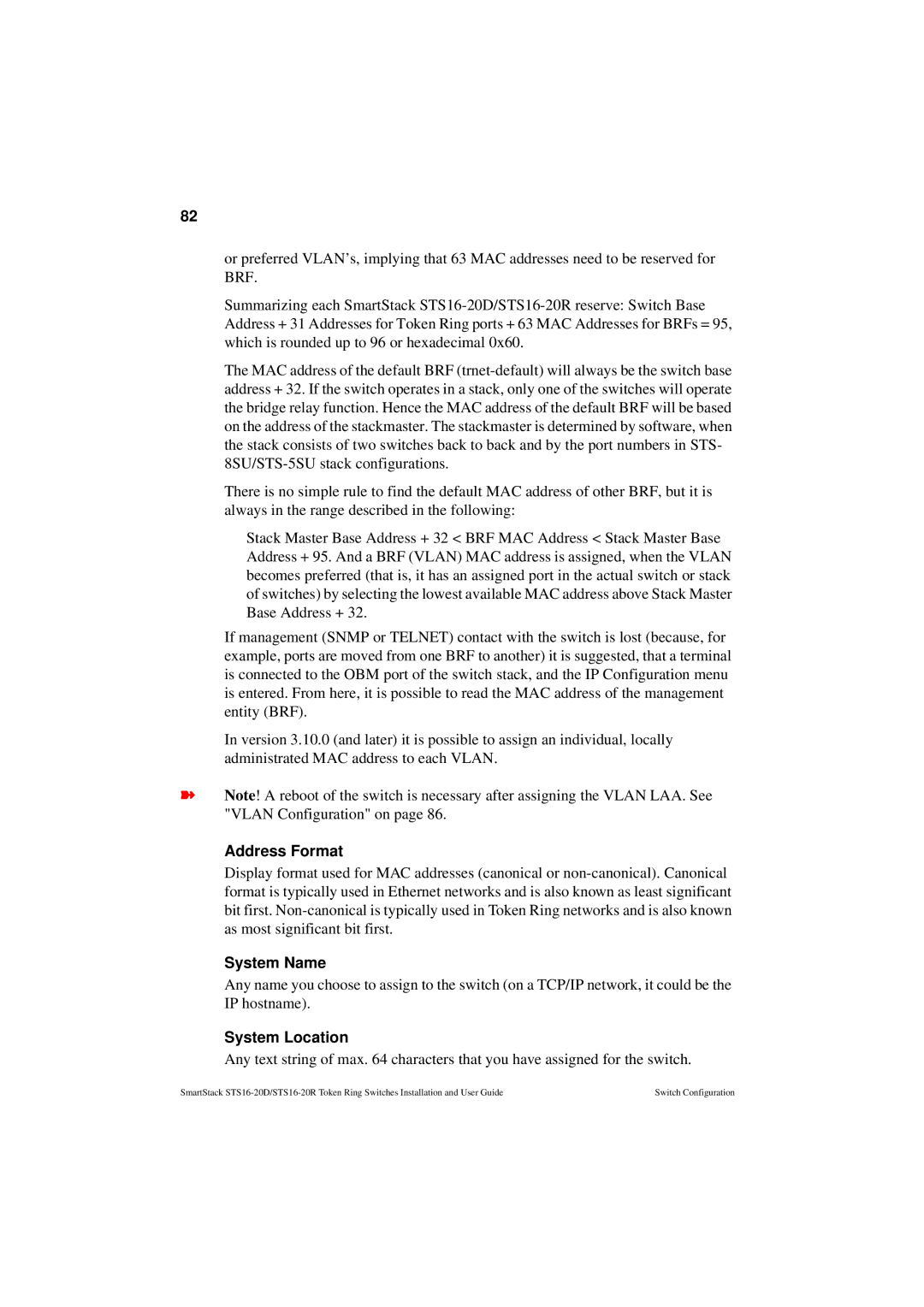82
or preferred VLAN’s, implying that 63 MAC addresses need to be reserved for BRF.
Summarizing each SmartStack
The MAC address of the default BRF
There is no simple rule to find the default MAC address of other BRF, but it is always in the range described in the following:
Stack Master Base Address + 32 < BRF MAC Address < Stack Master Base Address + 95. And a BRF (VLAN) MAC address is assigned, when the VLAN becomes preferred (that is, it has an assigned port in the actual switch or stack of switches) by selecting the lowest available MAC address above Stack Master Base Address + 32.
If management (SNMP or TELNET) contact with the switch is lost (because, for example, ports are moved from one BRF to another) it is suggested, that a terminal is connected to the OBM port of the switch stack, and the IP Configuration menu is entered. From here, it is possible to read the MAC address of the management entity (BRF).
In version 3.10.0 (and later) it is possible to assign an individual, locally administrated MAC address to each VLAN.
➽Note! A reboot of the switch is necessary after assigning the VLAN LAA. See "VLAN Configuration" on page 86.
Address Format
Display format used for MAC addresses (canonical or
System Name
Any name you choose to assign to the switch (on a TCP/IP network, it could be the IP hostname).
System Location
Any text string of max. 64 characters that you have assigned for the switch.
SmartStack | Switch Configuration |
